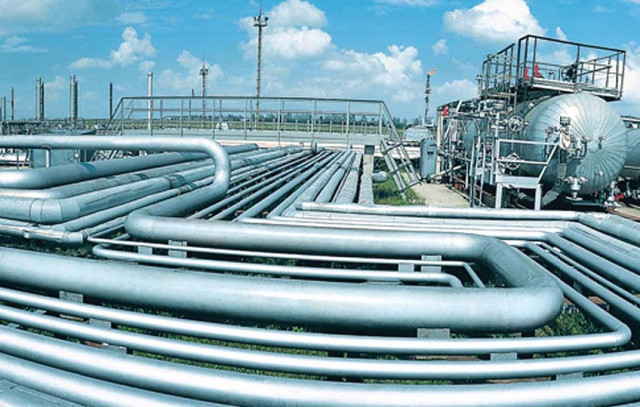Gas crisis: ‘The government had a plan in 2005 but did nothing’
State-owned companies have continued to add to the gas grid despite no substantial addition to supply.

The government had a gas allocation plan as early as 2005 but did not bother to implement it, resulting in the current crisis in the energy sector, according to sources familiar with the matter.
“The government had created a gas allocation and load management policy in 2005 in anticipation of the shortage, but did not implement it, leading to the current crisis,” said one energy expert who wished to remain anonymous.
Yet even now, despite the massive shortage of gas faced by the country, the two state-owned gas companies have continued to build new pipelines, spending Rs123 billion over the last six years to add approximately 2 million more consumers to the gas grid.
These figures were revealed during an analytical briefing to the cabinet given by the petroleum ministry, a copy of which was made available to The Express Tribune. The numbers in that presentation seem to suggest that, despite not having an adequate plan to increase the supply, the government has done nothing to try to curb the growth of demand, leading to an exacerbation of the problem.
Between July 2005 and June 2011, Sui Northern Gas Pipelines laid approximately 35,000 kilometres of pipelines, at an expense of about Rs80 billion, to provide gas to 1.45 million new consumers. Sui Southern Gas Company, meanwhile, over the same period spent Rs43 billion in laying 14,000 kilometres of pipelines to connect about 600,000 new consumers of gas.
These projects added an average of about 1,390 million cubic feet per day (mmcfd) of demand to the gas system in the country. About 830 mmcfd came from the additions to the SNGP network while about 567 mmcfd came from the expansion of the SSGC network between 2005 and 2011.
During this same time, the total supply in the country increased by a paltry 172 mmcfd. While about 533 mmcfd was added to the system as a result of new discoveries and another 225 mmcfd added due to increased production from existing fields, about 586 mmcfd was lost as a result of gas fields going offline due to depletion.
“It is pathetic that the gas companies are expanding their network without keeping in view the gas reserves depletion,” said one official at the Oil and Gas Regulatory Authority, on the condition of anonymity, adding that the strain on the system would likely cause natural gas prices to keep rising.
Yet energy pricing is precisely the one area where most experts agree the government does need to allow rises in prices.
As of today, most domestic consumers pay between $1.35 and $2.70 per million British thermal units (mmbtu). Fertiliser manufacturers pay between $0.75 per mmbtu to $1.20 per mmbtu. International gas prices, meanwhile, are at around $4 per mmbtu or higher.
Indeed, liquefied natural gas (LNG), which is being touted as a solution to the natural gas crisis is selling at $18 per mmbtu. The prices of LNG have jumped sharply by about 38% after the earthquake in Japan in 2011, which caused several nuclear power plants to shut down, causing an enormous shortage of energy, which Japan has been filling through an increase in the production of thermal power plants that run on imported LNG.
Pakistan’s current reserves are producing about 4,170 mmcfd, but that number is expected to decline to about 2,260 mmcfd by 2021. Meanwhile, demand is currently estimated at 5,395 mmcfd – about 29% higher than current supplies – and is projected to rise beyond 8,000 mmcfd by 2021.
Yet SSGC and SNGP do not seem to have any intention of slowing down their expansion of the gas network. Both companies are working on about 2,900 new projects that are expected to cost about Rs30 billion and add an additional 709 mmcfd of demand to an already strained system. SSGC has completed about 70% of the work on the projects in its area, while SNGP has completed about 46% of the projects that fall under its jurisdiction.
Published in The Express Tribune, January 8th, 2012.



















COMMENTS
Comments are moderated and generally will be posted if they are on-topic and not abusive.
For more information, please see our Comments FAQ